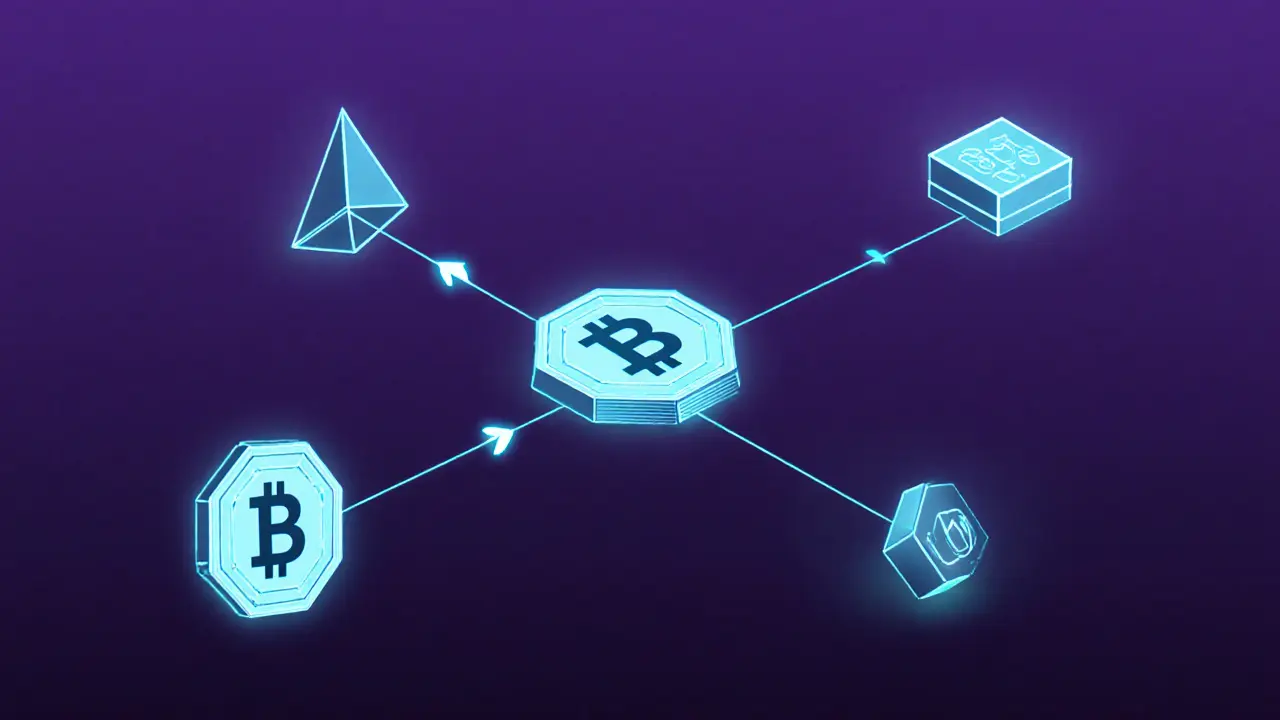Crypto Swap: How Decentralized Exchanges Work and What to Watch For
When you make a crypto swap, a direct exchange of one cryptocurrency for another without using a central authority. Also known as a token swap, it’s the backbone of decentralized finance—letting you trade directly from your wallet using smart contracts instead of relying on a company like Binance or Coinbase. Unlike traditional exchanges, a crypto swap doesn’t hold your money. You keep control. But that freedom comes with risk. Many swaps are built by anonymous teams, have no audits, and vanish overnight.
Behind every successful crypto swap is a decentralized exchange, a platform that runs on blockchain code and lets users trade directly with each other. Also known as a DEX, it’s what powers trades on Uniswap, PancakeSwap, or the Biconomy exchange that distributed 2.4 billion BIT tokens. But not all DEXs are equal. Some, like Superp on BNB Chain, offer crazy leverage and no liquidations. Others, like Tsunami.cash, have users reporting stolen funds and no way to withdraw. The difference? Audits, liquidity, and transparency. Then there’s the token swap, the actual process of exchanging one digital asset for another, often during a project’s launch or airdrop. Also known as a token migration, it’s how users trade old tokens for new ones—like switching from DPX to rDPX in Dopex’s options protocol. But scams love this moment. Fake airdrops like CDONK X CoinMarketCap or AXL INU use the word "swap" to trick you into connecting your wallet and giving away your crypto. You can’t trust a swap just because it’s labeled "decentralized." Look for locked liquidity, verified contracts, and active communities. If the team is anonymous and the token has zero trading volume—like Global Token (GBL)—it’s likely a ghost.
What you’ll find below isn’t just a list of articles. It’s a real-world guide to what works and what’s dangerous. You’ll see how BIT token distribution worked through PancakeSwap, why JPool’s JSOL lets you stake SOL without locking it up, and how NUT MONEY and Digiassetindo are outright scams hiding behind fake interfaces. You’ll learn how to spot a fake airdrop tied to a swap, why some tokens like ICNT have real use cases while others like SENTAI have no code at all, and how even big names like CoinMarketCap get exploited by fraudsters. This isn’t theory. It’s what happened—and what you need to avoid.
iZiSwap (X Layer) Crypto Exchange Review: Is This Niche DEX Worth Using?
iZiSwap on X Layer offers a unique DL-AMM model for precise liquidity placement, but with only $12k daily volume and razor-thin liquidity, it's not viable for real trading - only for DeFi experimenters.
learn more